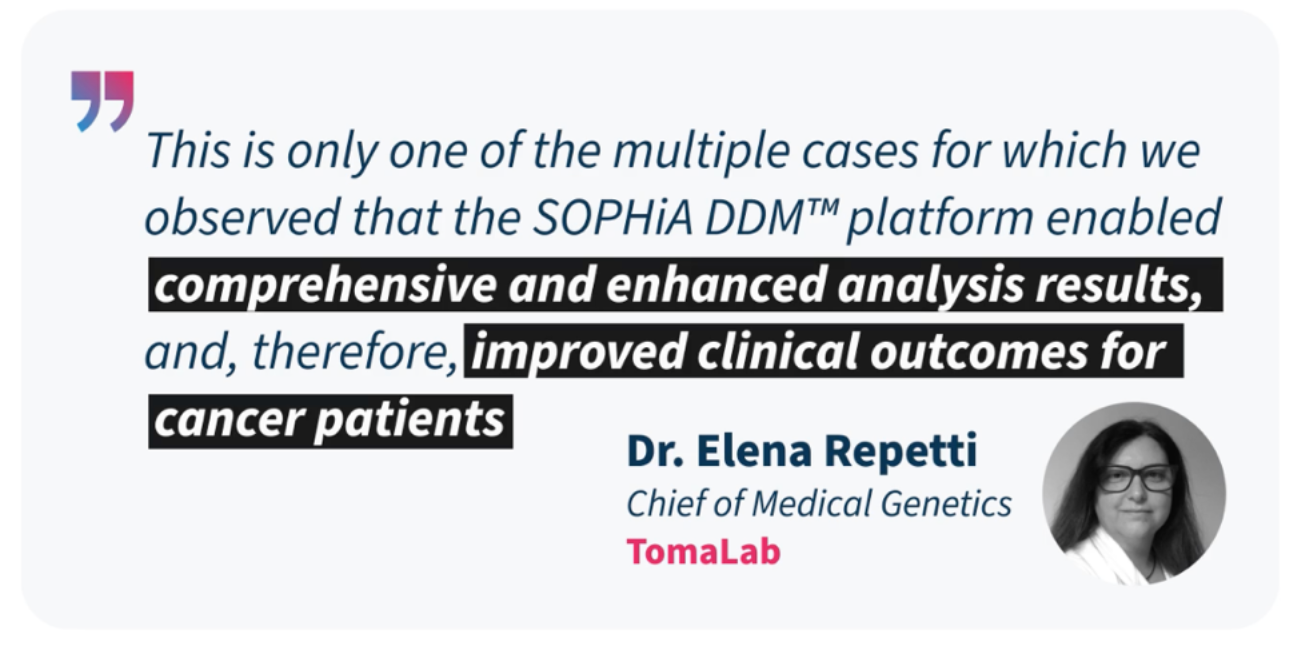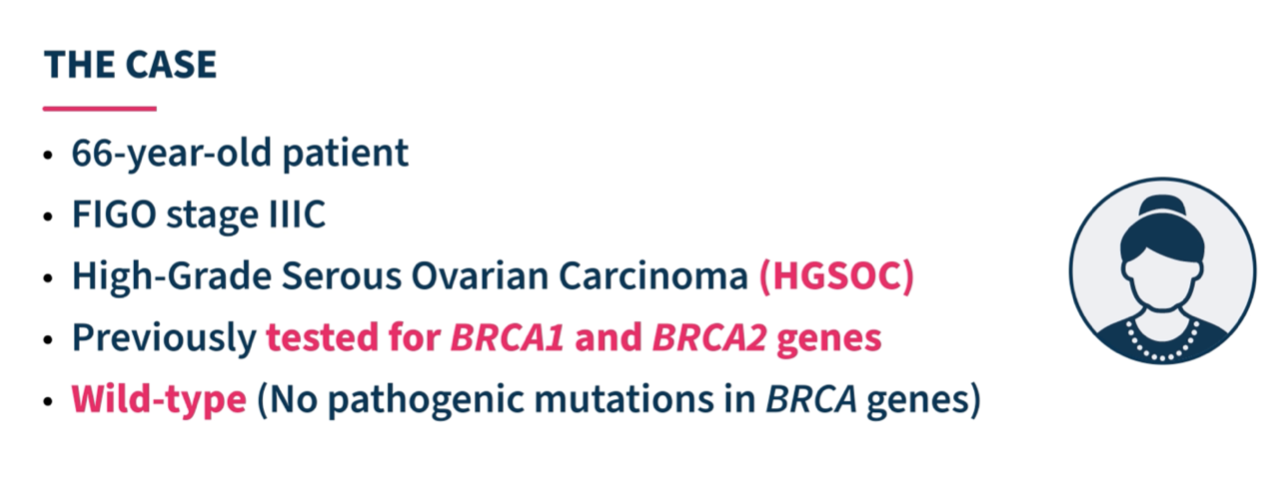Menu

Ovarian cancer is one of the most prevalent cancers in women and causes more deaths than any other cancer of the female reproductive system. A recent study¹, reported 313.959 new cases of ovarian cancer and 207.252 deaths from ovarian cancer in 185 countries globally in 2020¹. The rapid evolution of modern technology, along with the advancements in molecular genetics contributed significantly to defining new prognostic, diagnostic and therapeutic approaches in oncology.
In recent years, landmark studies have shown the paramount importance of analyzing the mutational status of BRCA1 and BRCA2 genes to predict the potential effectiveness of PARP inhibitors (PARPi) therapy in women afflicted with ovarian cancer².
PAOLA-1 clinical trial published in 2019³, showed that Homologous Recombination Deficiency (HRD) patients with genomic instability (GI) due to genetic alterations in the Homologous Recombination Repair (HRR) system presented a longer survival rate when treated with PARP inhibitors in combination with an anti-angiogenic agent (such as bevacizumab)³.

SOPHiA GENETICS products are for Research Use Only and not for use in diagnostic procedures unless specified otherwise.
SOPHiA DDM™ Dx Hereditary Cancer Solution, SOPHiA DDM™ Dx RNAtarget Oncology Solution and SOPHiA DDM™ Dx Homologous Recombination Deficiency Solution are available as CE-IVD products for In Vitro Diagnostic Use in the European Economic Area (EEA), the United Kingdom and Switzerland. SOPHiA DDM™ Dx Myeloid Solution and SOPHiA DDM™ Dx Solid Tumor Solution are available as CE-IVD products for In Vitro Diagnostic Use in the EEA, the United Kingdom, Switzerland, and Israel. Information about products that may or may not be available in different countries and if applicable, may or may not have received approval or market clearance by a governmental regulatory body for different indications for use. Please contact us at [email protected] to obtain the appropriate product information for your country of residence.
All third-party trademarks listed by SOPHiA GENETICS remain the property of their respective owners. Unless specifically identified as such, SOPHiA GENETICS’ use of third-party trademarks does not indicate any relationship, sponsorship, or endorsement between SOPHiA GENETICS and the owners of these trademarks. Any references by SOPHiA GENETICS to third-party trademarks is to identify the corresponding third-party goods and/or services and shall be considered nominative fair use under the trademark law.